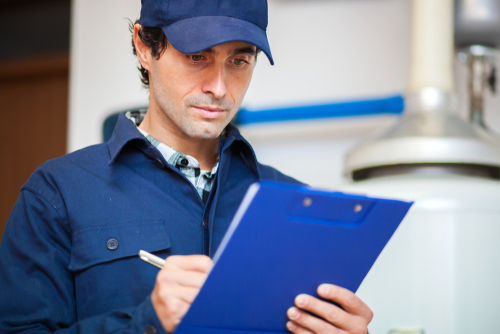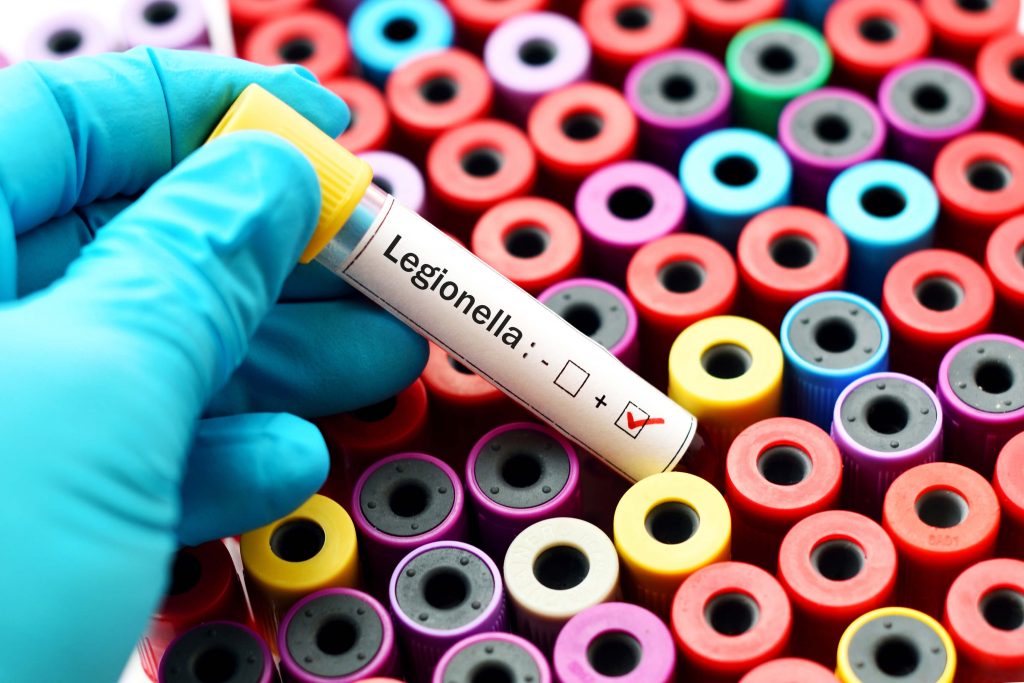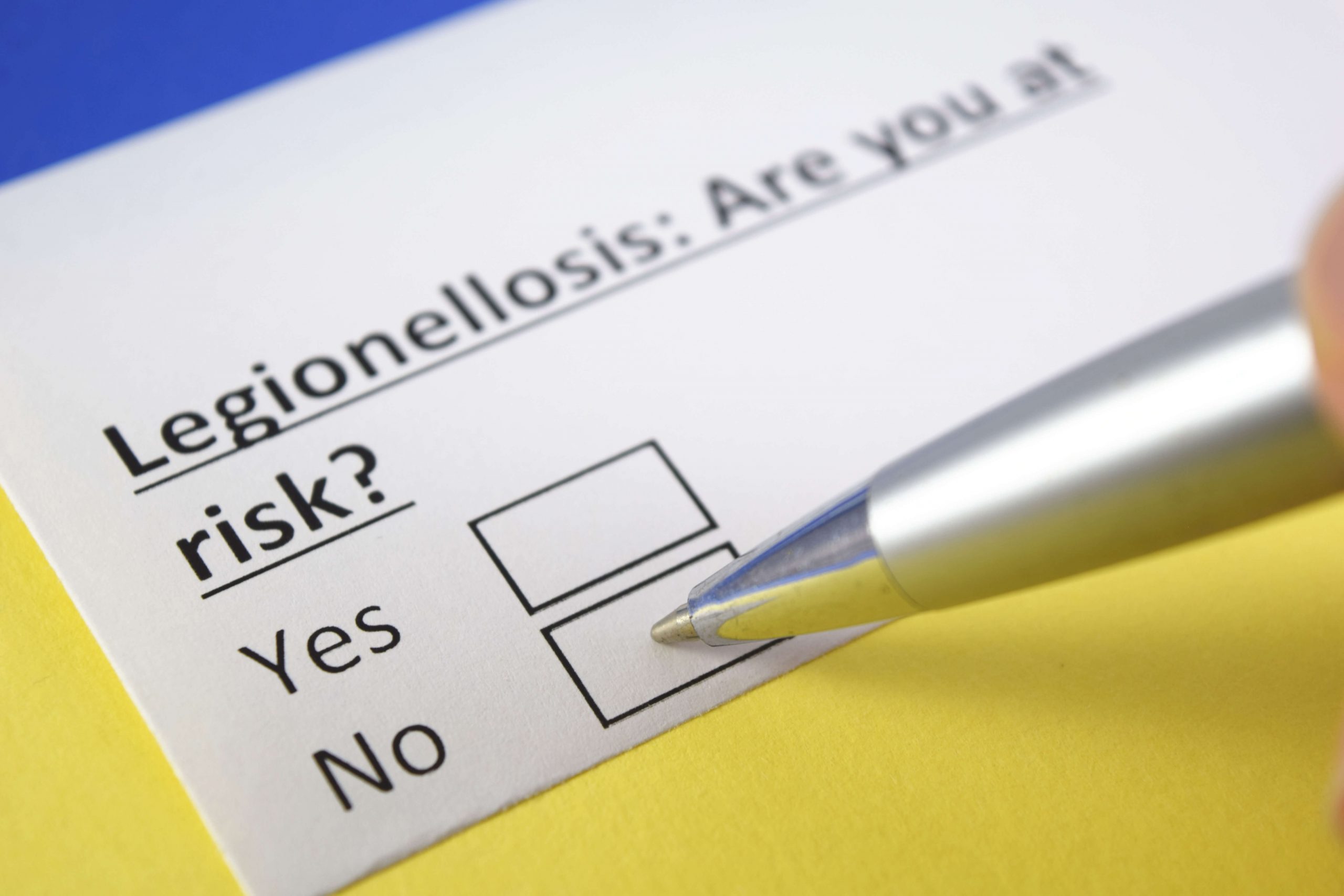It’s required by law that buildings are regularly carrying out Legionella Risk Assessments for the sake of health and safety. The consequences can be severe if they are not undertaken. But do you know who can legally carry out a legionella risk assessment?
What is Legionella?
Legionella is a naturally occurring water-borne bacteria. It grows in water systems that are not properly maintained and, if ingested, it has the potential to cause serious illness.
Legionella bacteria will usually be found in bodies of water between 20-45ºC which have been left to become stagnant. This can include the water reservoirs, boilers, and heating tanks of buildings.
This can be very dangerous, as when Legionella is inhaled in the form of an aerosol, it can go on to cause Legionnaires Disease.
This is a form of pneumonia that infects the lungs and causes difficulty breathing, fever, headaches, chest pain, and even death in some cases. It can be very serious if contracted, especially if someone is elderly or has immune or respiratory issues.
What is a Legionella Risk Assessment?
Because of the risk Legionnaires disease carries, it’s the law that every UK business, no matter the size, must conduct a legionella risk assessment. The aim is to identify if water is contaminated with legionella and to keep employees, customers, and other users of the building safe. This is also the case for landlords, building operators and business owners.
The risk assessment identifies areas of potential danger and includes a plan of action to reduce the levels of bacteria where necessary.
Is Legionella Risk Assessment a requirement?
It is the building operator’s legal responsibility to conduct or appoint qualified personnel to conduct a Legionella Risk Assessment. This is the first step toward implementing a water treatment and hygiene programme. By identifying hazards and implementing a monitoring programme, you can comply with the Health and Safety Executives ACoP L8 guidance and the Health and Safety at Work Act 1974, among other regulations.
“A suitable and sufficient assessment must be carried out to identify and assess the risk of exposure to legionella bacteria from work activities and water systems on the premises and any precautionary measures needed. The duty holder is responsible for ensuring the risk assessment is carried out.” (ACoP L8:2013, paragraph 28.)

What happens if I don’t test for Legionella?
If you’re responsible for a property, it’s essential that you regularly test for legionella. It’s required by law to undertake appropriate risk assessments and preventative measures to preserve the health and safety of the building users.
If you don’t carry out risk assessments, you may be legally responsible for any harm, sickness or death that may be caused as a result of legionella in your water supply. You can be charged heavy fines or even face imprisonment. Simply put, it isn’t worth the risk to neglect your responsibility to test.
What does a Legionella Risk Assessment involve?
Upon arrival, a Legionella Risk Assessor will conduct an unobtrusive inspection of your building’s water system, paying particular attention to the building’s more vulnerable assets. Next, a set of criteria is used to identify and assess the risks.
Depending on the needs, a detailed report will be provided either electronically or on paper. In every report, recommendations will be made to enhance water system health.
Who can carry out a Legionella Risk Assessment?
According to UK legislation, a competent individual is all that is required to perform the assessment. Competency comes from knowing about health and safety regulations and the proper process for Legionella Risk Assessment.
This is a task that carries significant weight. If not carried out correctly, the risk to the building’s users can be great, even fatal. For this reason, the assessor should always be skilled, experienced, and knowledgeable. Whoever is designated must ensure that all operational procedures are completed quickly and effectively. Control measures and strategies must be implemented.
Whilst it isn’t necessary to hire a professional, it’s worth being confident in your choice of assessor. Always think carefully for the sake of health and safety.
Self-employed individuals and business partners may nominate themselves as the responsible assessor if they qualify. They must follow proper information, instruction, and training. It is also important that they are familiar with broader health and safety management structure and policies of the organisation.

Why should I hire a water treatment company?
Despite not being a legal requirement, hiring a legionella expert can be beneficial.
You can feel confident that your water system is inspected safely when you employ a water treatment company such as Glacier.
Glacier’s microbiological sampling services are carried out with the utmost care and accuracy according to the LCA Code of Conduct. We also guarantee that all microbiological samples are transported, taken, and analyzed under UKAS accredited conditions.
How Glacier can help
Glacier Environmental ltd is a well-established water treatment and hygiene company specialising in preventing, detecting, and abating the risk of Legionnaires’ disease. We provide a UK-wide water system maintenance service for a wide range of clients.
The products provided by Glacier Environmental to these customers include Legionella risk assessments, water storage tank cleaning and disinfection, calorifier and hot water tank cleaning and inspection, cold water tank refurbishment, cooling tower treatment, cooling tower cleaning and disinfection, as well as bacteriological testing and sampling.
As part of our Legionnaires disease management program, our company employs a specialised workforce. Our staff are trained according to the Legionella Control Association training matrix. Our quality procedures are in line with the latest ISO 9001 standards. We’re members of The Legionella Control Association, and we’re also involved in CHAS, Safe Contractor, and The Water Management Society. At Glacier Environmental ltd. We are committed to technology, innovation, and improvements to working practices.
Contact us today to find out how we can help you protect against legionella.

